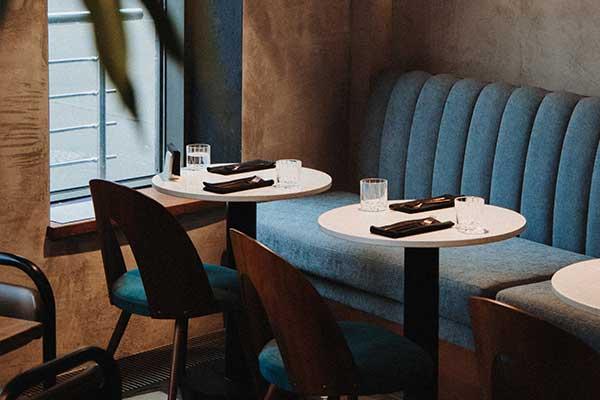Asking for a deposit when booking: yes or no?

We all recognise it by now: customers are less likely to make reservations, often cancel a table, or turn out to be a no-show. In a series of blog posts, we will explain how you can prevent these things from happening, but also how you can maximise your table capacity by making proper use of the Resengo tools designed for this purpose.
It is increasingly common that while booking a table in a restaurant, you have to pay a deposit right away. Rightly so? Or not? In the end, as a chef or manager, you still count on the reserved number of covers and schedule your staff based on these reservations. Maybe there are even several guests on your waiting list who would be happy to use that table.
One thing is certain: late cancellations and no-shows are a real plague in the hospitality landscape. The use of advance payments in restaurants is already a solid solution to combat no-shows and late cancellations.
“The no-show phenomenon is an old problem. We have been struggling with no-shows for years and have learned to live with them. But for the past two years or so, it has been getting a bit out of hand for us when customers who book online don't show up. Especially on weekends. On weekdays where we are not fully booked, it is not so bad. But Friday and Saturday nights are our peak nights. When we've had to turn down 20 people by then for a table whose party doesn't show up, it's a big problem for me.”
Szelim Man, Cuichine
An empty table, an empty register
It's a hot topic in the hospitality landscape. Restaurants are increasingly asking for deposits. They do so to avoid no-shows and compensate part of the loss.
Guests, on the other hand, frown at the idea of this deposit and question this measure out loud. Why is cancelling a reservation or not showing up such a problem now?
For the guest, this is about a spontaneous, last-minute decision, but for the restaurant owner we are talking about a completely lost table and thus lost revenue.
Restaurant owners are reluctant because they fear their customers will drop out if they have to pay an deposit. However, the idea of asking for a 'guarantee', so to speak, is already well established in other sectors.
We would like to give you some tips for working with advance payments and credit card guarantees in your restaurant.
How much adcance or guarantee should you ask?
For most restaurant owners, the deposit should also cover the loss.
When someone cancels a reservation at the last minute, you lose the revenue of the entire table. Based on that, you determine your deposit. It can range from €25 to more than €100 per cover.

1. Pay immediately when booking: a deposit
Within the Resengo reservation system, you can set the advance payment settings entirely to your liking.
For example, you can choose to have your guests pay a certain amount immediately upon booking. The amount paid in advance will of course be deducted when the guest checks out after the meal.
2. Reserve an amount with credit card guarantee
A credit card guarantee works more or less the same way. With this method, you actually reserve a certain amount of money on the guest's credit card.
With a credit card guarantee, the money does not change hands, and most guests find this a pleasant way of working. When the guest shows up or cancels on time, the secured amount is released again.
If the guest cancels late or fails to show up, this amount is still charged. It then serves to offset the loss you suffer as a restaurant owner.
A credit card guarantee is a commonly used and reliable way of temporarily reserving money, just like it is done for a refuelling or hotel reservation.
You can set up both methods for advance payments via your Resengo Admin.
Your restaurant's cancellation policy
When fighting empty tables as a restaurant owner, you would do well to define the cancellation policy for your restaurant so that there is no discussion afterwards.
- How long in advance can a guest cancel free of charge?
- How much is the deposit?
- When do you, as a business owner, get into trouble for a cancellation?
Mention these details on your website and during the booking as well. This way, you always have a publicly accessible document in which your conditions are written out.
By using Resengo's cancellation conditions, you can be sure that the conditions are displayed correctly on your website.
"Our cancellation policy is quite broad. Customers can cancel until 5pm on Friday and Saturday evenings. This brings understanding for situations that may change last minute. I am also very confident that if you cancel a table for 6 people before 5 o'clock, I will still get that table filled.”
Szelim Man, Cuichine

Other ways to combat no-shows and cancellations
Besides asking for a deposit or guarantee, there are other ways to discourage or counter no-shows and cancellations.
For example, in your Resengo Admin, you can also utilise booking confirmations via SMS or email. This method requires your guests to actively confirm before their arrival that they will attend the appointment.
A reservation confirmation reminds your guests that you are waiting for them. It gives them the opportunity to either confirm or cancel in time.
Does the customer not confirm? Then the reservation is automatically cancelled and you can give the table to someone else.
Last-minute marketing
Whether you ask for a deposit or not, there will always be people who don't show up. By collecting a deposit, at least you won't get into financial trouble.
But of course, you can still promote the empty table as a last-minute through various channels. Last-minutes are often the ideal way to fill a lonely table with happy guests.
Resengo tips for using deposits in your restaurant
Make your guests aware of the impact of their cancellation
Deposits are a proven way to combat no-shows
Ask for an advance payment in line with the value of a cover
Set clear and correct cancellation terms
Also use a reservation confirmation to avoid late cancellations
Still got an empty table? Offer it as a last-minute promotion

